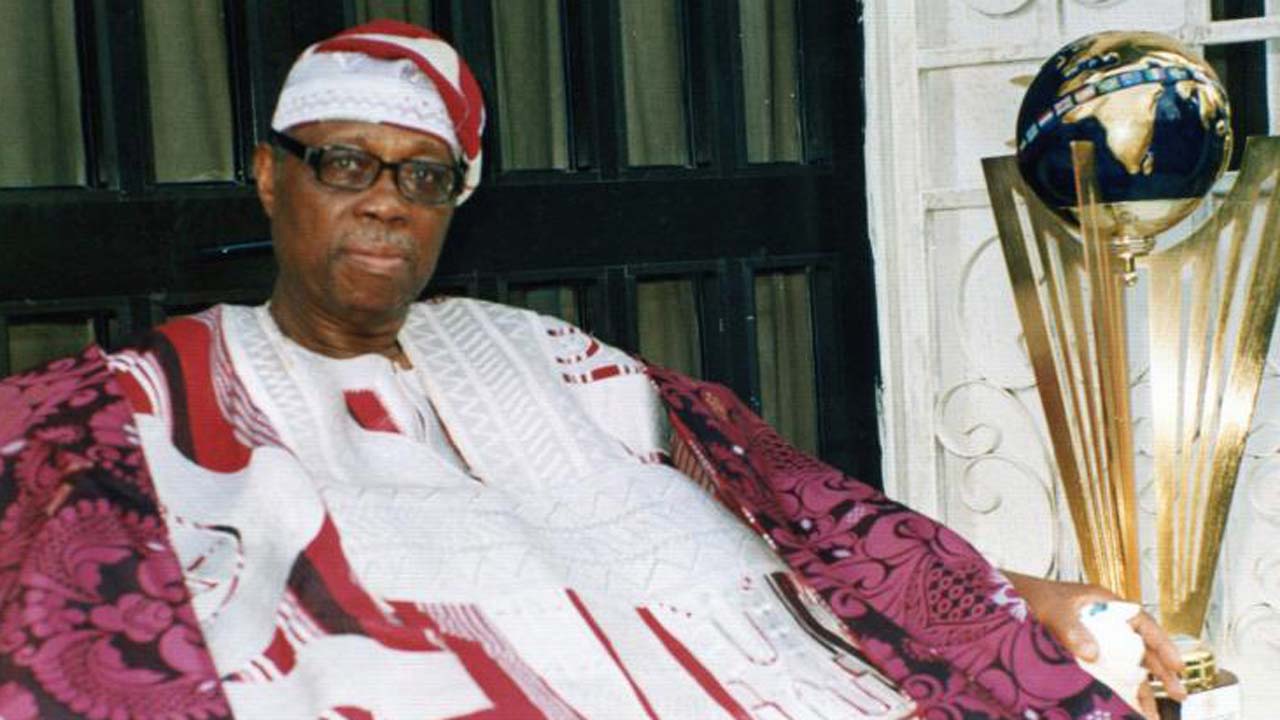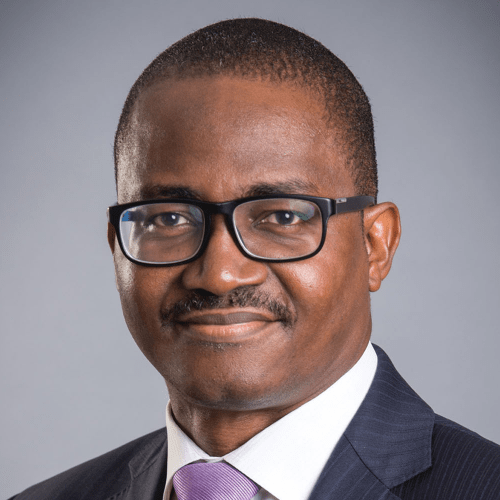He died a much-loved and incorruptible Nigerian. He was distinguished for his unwavering commitment to justice, fairness, and the rule of law, which earned him the respect and admiration of his colleagues and peers.
Throughout his illustrious private legal career, His Excellency, Judge Bola Abdul Jabbar Ajibola, SAN, who passed away on April 8, 2023, at the age of 89, was a staunch advocate for human rights and social justice, and he was never afraid to speak out against injustice or to defend the oppressed.
He demonstrated an unparalleled depth of knowledge and a keen understanding of the law. He was a champion of justice and a defender of the rule of law, and his unwavering commitment to these principles was unmatched.
Beyond distinguishing himself in private life, Prince Bola Ajibola also excelled in public life. He was the President of the Nigerian Bar Association (NBA) between 1984 and 1985. In 1985, he was appointed the Attorney General of the Federation and Minister of Justice. He served Nigeria with distinction.
As the Attorney General of Nigeria, Prince Ajibola was reputed to never take home a salary, asking that it be distributed to the coffers of the Federal Government, the NBA, and charitable/humanitarian organisations. He worked tirelessly to ensure that justice was served and that the rights of every citizen were protected.
He was a fearless advocate for the marginalised and the oppressed, and his efforts to promote human rights and social justice have left an indelible mark on the legal landscape of Nigeria. He was instrumental in the fight against corruption, and he worked tirelessly to promote good governance and the rule of law.
Speaking at a public event of Baptist Boys’ High School (BBHS), Abeokuta, Ogun State recently, Vice President Osinbajo, who worked with Prince Ajibola at the Federal Ministry of Justice, narrated two occasions in which Ajibola demonstrated his integrity and incorruptibility. According to Osinbajo, on one occasion, a foreign contractor who had won a very lucrative Federal Government contract in Nigeria went to give Ajibola’s son, who was in the university in England, a brand new Golf car as a gift.
His son then contacted his father, and Ajibola became so infuriated that he commanded his son to return the Golf car immediately back to the sender. Not only was the car returned to the foreign contractor, but his bad conduct was reported to the government of his home country, which tendered a special apology to the Nigerian government.

The second incident, according to Vice President, involved a foreign aircraft that was arrested in Nigeria for carrying drugs. The Office of the Attorney-General was responsible for carrying out the arrest, and a very wealthy Nigerian lawyer purportedly acted as an intermediary for an interested party somehow connected to the aircraft. The lawyer came to Ajibola to offer him a bribe in foreign exchange. In his reaction, Ajibola not only turned to shout at the lawyer for daring to offer him a bribe to compromise his values but promptly ordered the lawyer out of his office. Of course, the senior lawyer walked out of Ajibola’s office in shame.
On the international sphere, Ajibola was a judge of the International Criminal Court (ICC) at The Hague, Netherlands. In his capacity as a judge of the ICC, he brought his considerable expertise and knowledge to bear on some of the most complex and challenging cases of our time. He was a staunch defender of the ICC’s mission to promote accountability and justice for crimes against humanity, and his contributions to the court will be remembered for generations to come.
After a three-year stint at the World Court in 1994, he further served as Judge Ad Hoc of the World Court from 1994 to 2002. He was appointed Judge of the Constitutional Court of the Federation of Bosnia and Herzegovina. He also served as the Nigerian High Commissioner to the United Kingdom between 1999 and 2002. The former NBA President was also chairman of the Body of Benchers and Council of Legal Education.
Perhaps Ajibola’s most-prized qualities were his resilience and sense of justice. Throughout his illustrious stint at the ICC, Ajibola was distinguished by his exceptional brilliance in expounding and expanding the law in accordance with substantial justice. He was not a judge of timorous proclivity who bowed to public sentiments just to please the crowd. He was a judge of avowed integrity who unwaveringly subscribed to judicial activism and innovation. We salute his uncommon courage and resilience in sticking to what is right throughout his professional career and his stint at the ICC.
Ajibola was a humanist, a lover of education, and a believer in the potentials of young Nigerians. This compelled him in his later years to practically sell all he had to establish the Islamic Mission for Africa in 1996, which metamorphosed into the present-day Crescent University in Abeokuta, Ogun State. When asked by Osinbajo why he sold his property to start the aforementioned project, Ajibola had answered: “Wealth means nothing if it doesn’t positively impact the lives of others.”
Born on March 22nd, 1934, to the Owu Royal Family, the late ex-Judge attended Owu Baptist Day School, Ago Owu, and Baptist Boys High School, Abeokuta, Ogun State, for his primary and secondary school education, respectively, between 1942 and 1955. In 1958, he enrolled at Holborn College of Law, University of London, from where he graduated in 1962 with a degree in law before he was called to the Bar at Lincoln’s Inn on November 27th, 1962.
He was the chairman of the Nigerian delegation to the Nigerian-Cameroun Mixed Commission on the Bakassi Peninsula. He served as the vice president and later president of the World Bank Administrative Tribunal from 1994 to 2005. He was the president of the World Association of the World Jurists and Arbitrator of the Ethiopia-Eritrea Boundary Dispute Commission.
In recognition of his outstanding impact on the sands of time, Usmanu Dan Fodiyo University, Sokoto, awarded him a Doctor of Literature (D. Litt) in 2003, while the Federal University of Agriculture conferred on him an Honorary Doctor of Agriculture (D. Agric) in 2004. He also founded African Concern, a non-governmental organisation in Lusaka, Zambia, in May 1995 to promote peace, justice, and harmony among the peoples of Africa in order to eradicate the problems of refugees arising from political conflicts and natural disasters.
He accomplished this in association with the United Nations High Commissioner for Refugees, providing succor to refugees in Nigeria, Liberia, Sierra Leone, and Rwanda.
To assert that the passing of Ajibola has created a depletion in the stock of honourable men and women is an understatement. The truth of the matter is that in the death of Ajibola, Nigeria and humanity have lost a rare gem, a fine jurist, and an honourable man. As we mourn the loss of this remarkable individual, we take comfort in the knowledge that his legacy will live on. We extend our deepest condolences to Prince Ajibola’s family, friends, and colleagues. We urge them to continue to honour his memory by working to promote the values and ideals which he held so dear.
Source: The Guardian
















